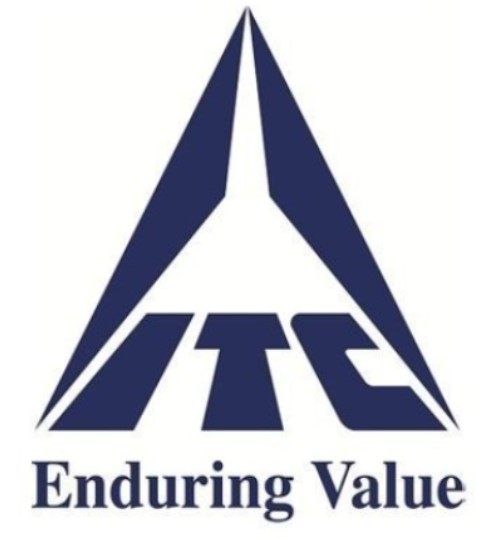ITC’s approach to Corporate Social Responsibility (CSR) exemplifies its steadfast commitment to fostering a sustainable and inclusive future. The conglomerate seamlessly integrates environmental stewardship and social empowerment into its core business philosophy, embodying the triple bottom line: people, planet, and profit.
Through transformative initiatives like Mission Sunehra Kal, ITC empowers rural communities by championing water stewardship, advancing agricultural practices, and promoting women’s empowerment. These programs have uplifted millions, creating sustainable livelihoods while building resilience against climate challenges. The groundbreaking e-Choupal initiative further exemplifies ITC’s impact, revolutionizing rural agrarian economies by bridging the digital divide. By connecting farmers directly to markets, it ensures fair pricing, enhances knowledge sharing, and drives economic growth.
On the environmental front, ITC has set industry benchmarks by becoming carbon-positive, water-positive, and a solid waste recycling leader. Its afforestation programs not only offset carbon emissions but also generate substantial employment opportunities, proving that environmental responsibility can align with social impact.
ITC’s CSR philosophy transcends traditional philanthropy, focusing instead on scalable, systemic change. By aligning its business strategies with societal needs, ITC illustrates how corporations can serve as powerful catalysts for positive transformation. Moreover, its efforts inspire other organizations to embrace a growth model that benefits all stakeholders.
In an exclusive interaction with The Interview World, Anil Rajput, President of ITC Corporate Affairs, delves into the organization’s flagship CSR initiatives. He offers insights into ITC’s annual CSR budget allocation, underscores the critical need for government-industry collaboration to amplify CSR outcomes at the national level, and highlights priority areas requiring immediate attention for the greater good of society. Here are the key takeaways from this illuminating discussion.
Q: What are the key CSR initiatives ITC undertakes, and how are they contributing to sustainable development and community empowerment?
A: Our Corporate Social Responsibility (CSR) initiatives are thoughtfully crafted and holistically implemented, extending their reach across the nation. These programs are deeply rooted in addressing critical challenges within the agricultural sector, with a strong focus on social farm forestry, watershed development, and uplifting the farming community. By fostering skill development, we empower farmers with advanced tools and the latest technological innovations to improve productivity and achieve sustainable growth. Furthermore, our efforts go beyond mere assistance, aiming to transform their livelihoods, enhance their quality of life, and enable them to rediscover their potential. Through these initiatives, we strive to create lasting, positive impact.
Q: What are ITC’s major healthcare initiatives under CSR, and how are they impacting communities across the country?
A: ITC currently does not operate any large-scale healthcare programs. However, in rural India, we actively support communities by facilitating access to primary healthcare services in select areas. Through these efforts, we also address critical gaps and contribute to improving the well-being of underserved populations.
Q: What is the annual budget allocated for CSR activities in your organization, and how is it distributed across various initiatives?
A: The Companies Act determines CSR spending, which mandates an allocation of 2% of our profit. This amount fluctuates annually, depending on the profitability of the company. Currently, our CSR expenditure stands at approximately ₹400 crores.
Q: If major corporations collaborate effectively and strategically deploy their CSR contributions, what transformative changes do you envision for the country?
A: CSR efforts by corporations, if approached in the way you’re suggesting, will not yield significantly superior outcomes. Our country truly needs a focused and concentrated effort, one that drives meaningful change in the specific sectors where we operate. India is vast and faces numerous challenges.
Moreover, the combined CSR spending of corporates remains relatively small in comparison to the country’s broader needs. The government’s budget, particularly in sectors like healthcare and social welfare, far exceeds what corporates contribute. However, what corporations bring to the table is their exceptional management expertise. The ideal scenario would be for the government and corporations to collaborate, leveraging their respective strengths to create more substantial and lasting change for the people of India.
Q: How do you prioritize the focus areas for CSR initiatives to address the most pressing needs of the country?
A: I firmly believe that the essence of India lies in its rural heartlands. While urban areas have access to a wide range of facilities, information, and skills, rural India continues to face significant challenges. This gap in development is a critical issue that needs urgent attention. The potential for growth in rural areas is immense, and the more effort we put into improving these regions, the greater the impact on the country’s overall progress. By focusing on rural India, we can empower communities, bridge the development divide, and contribute to a more inclusive, equitable, and prosperous society.









